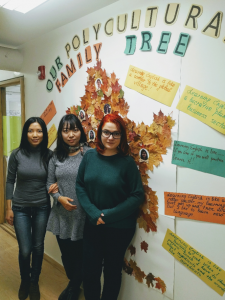Learner in the Centre
Learner-centred teaching (LCT) achieved best practice status in our field many years ago. Most of us have a sense of what LCT entails. We may characterize it as developing curriculum with the learners in mind; differentiating instruction to address learners’ varied proficiency levels, goals and interests; or simply providing more learner-talk than teacher-talk time. This article1 looks a little more deeply at LCT and some of the concepts underpinning its success in the 21st century English language classroom.
Marilyn Weimer (2012) defines LCT as follows:
Learner-centered teaching engages learners in the hard, messy work of learning.
It includes explicit skill instruction. It encourages learners to reflect on what, why and how they are learning. LCT also motivates students by giving them some control over learning processes. Continue Reading →

